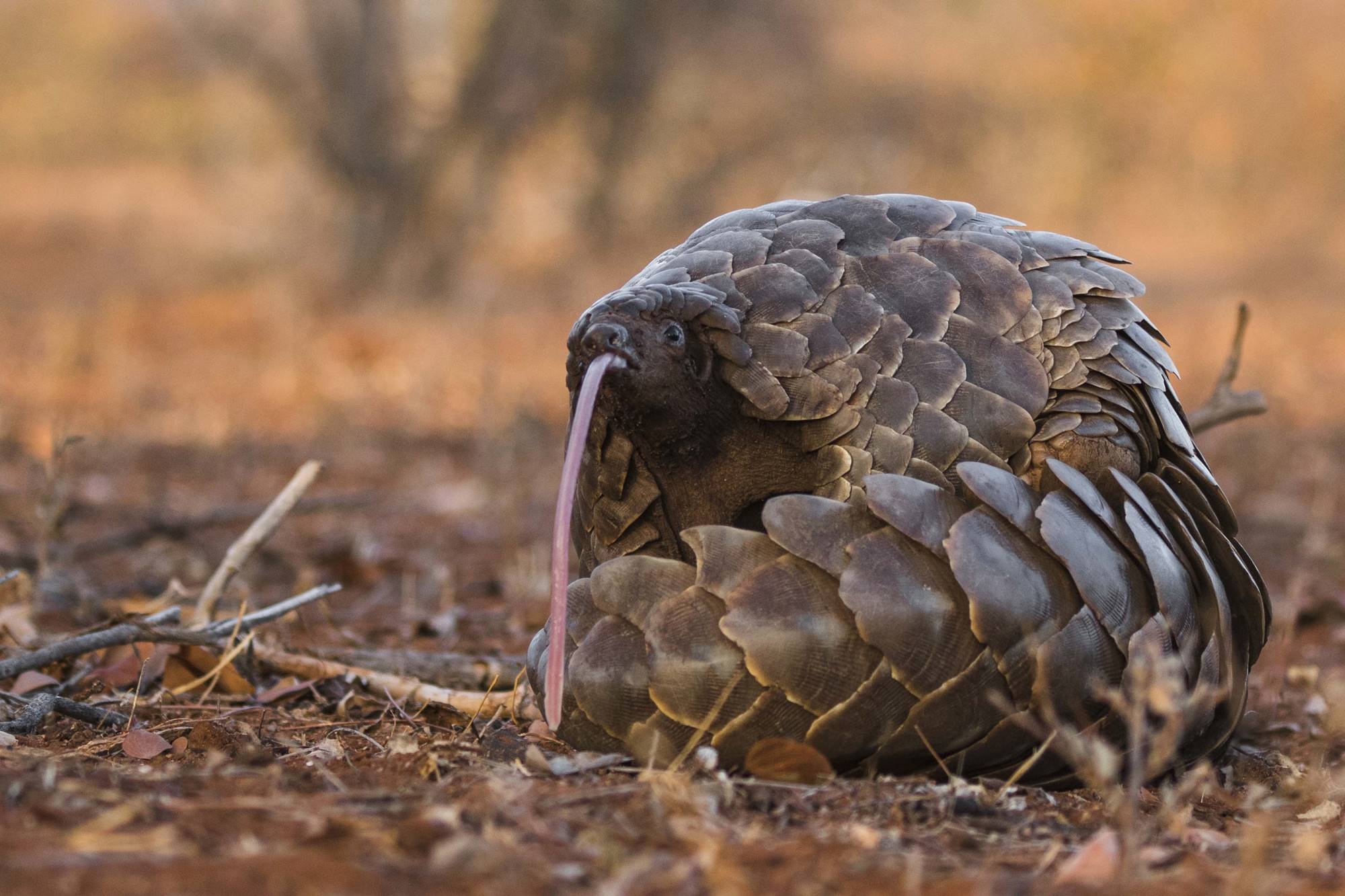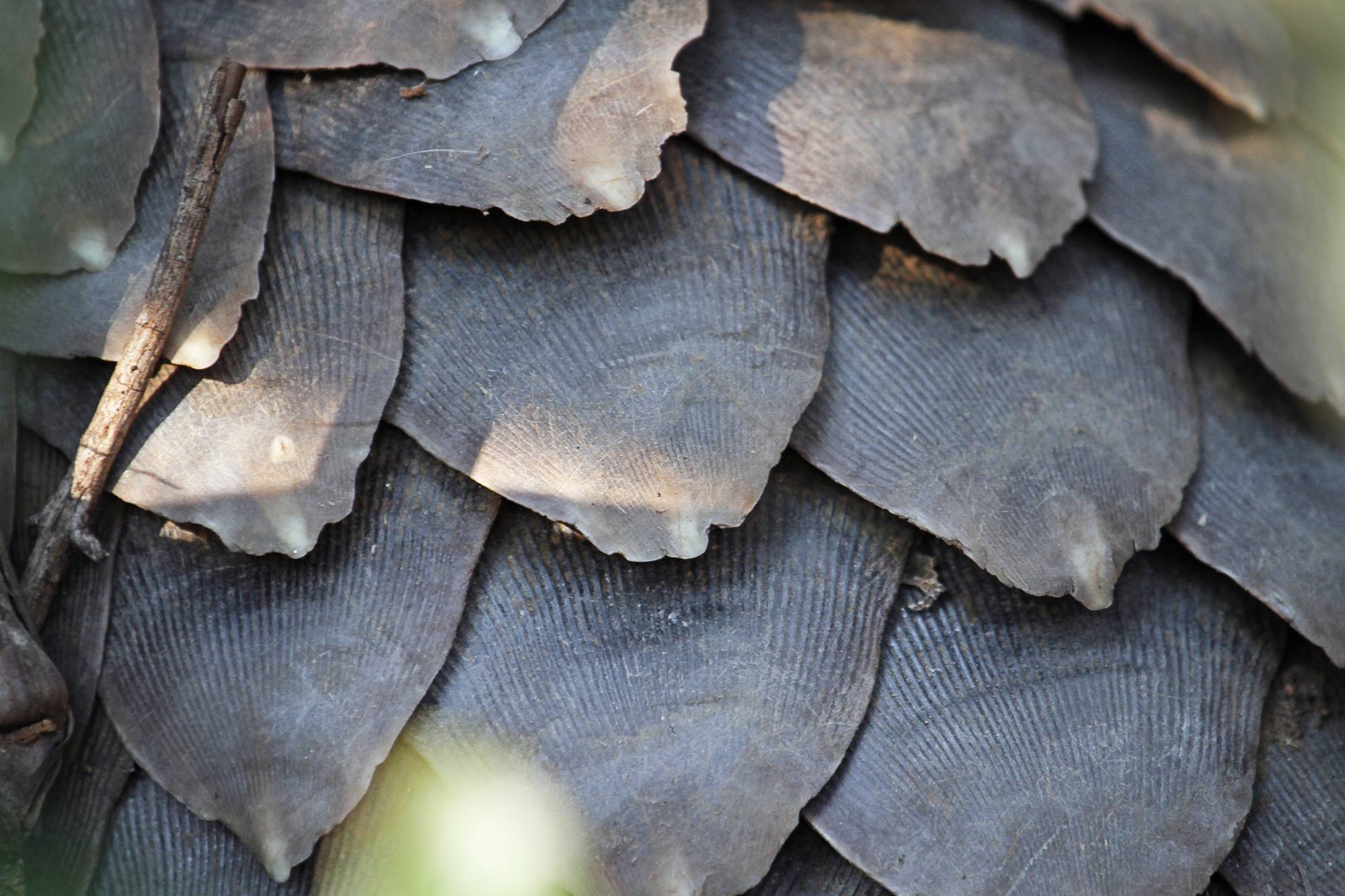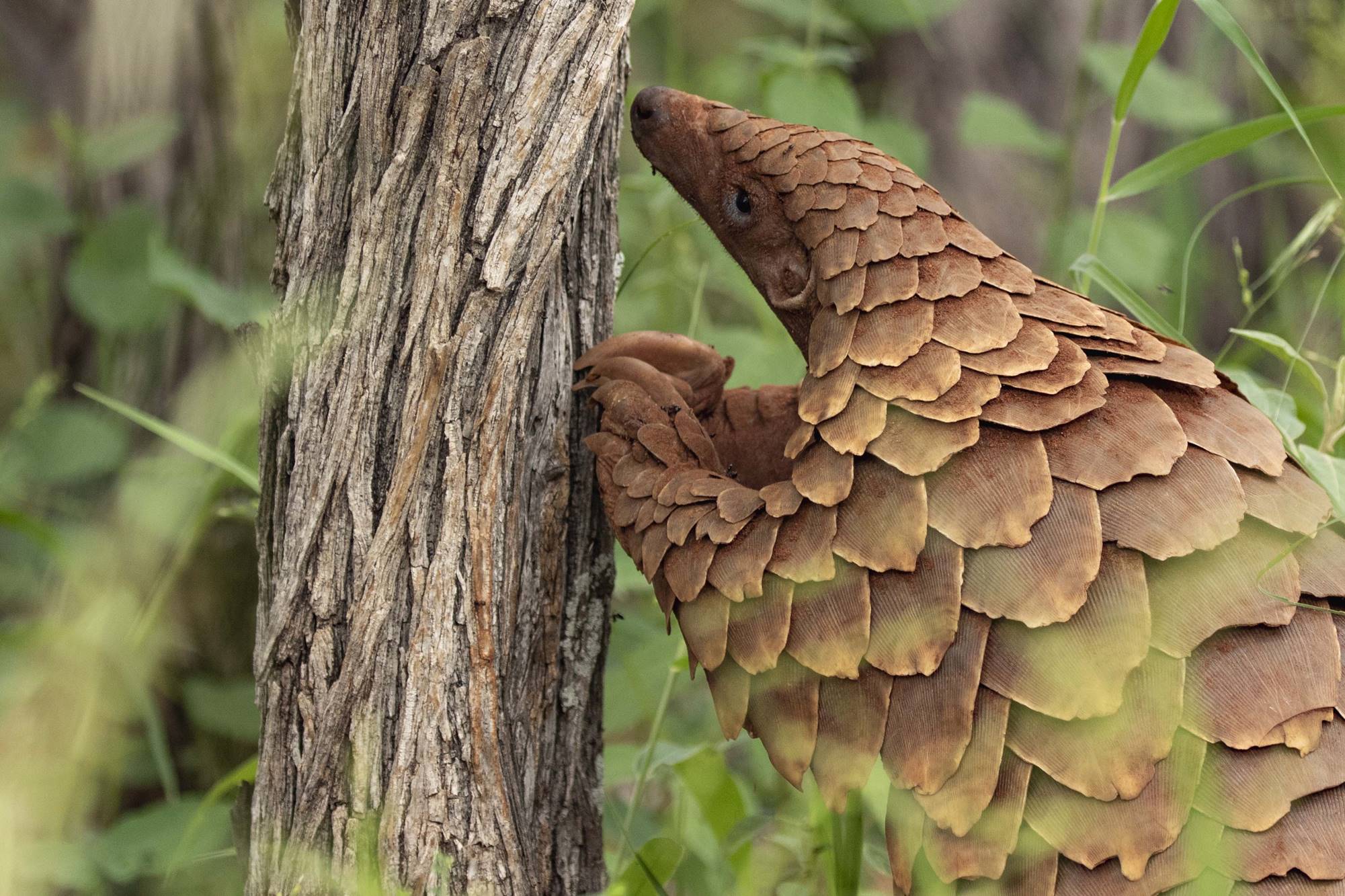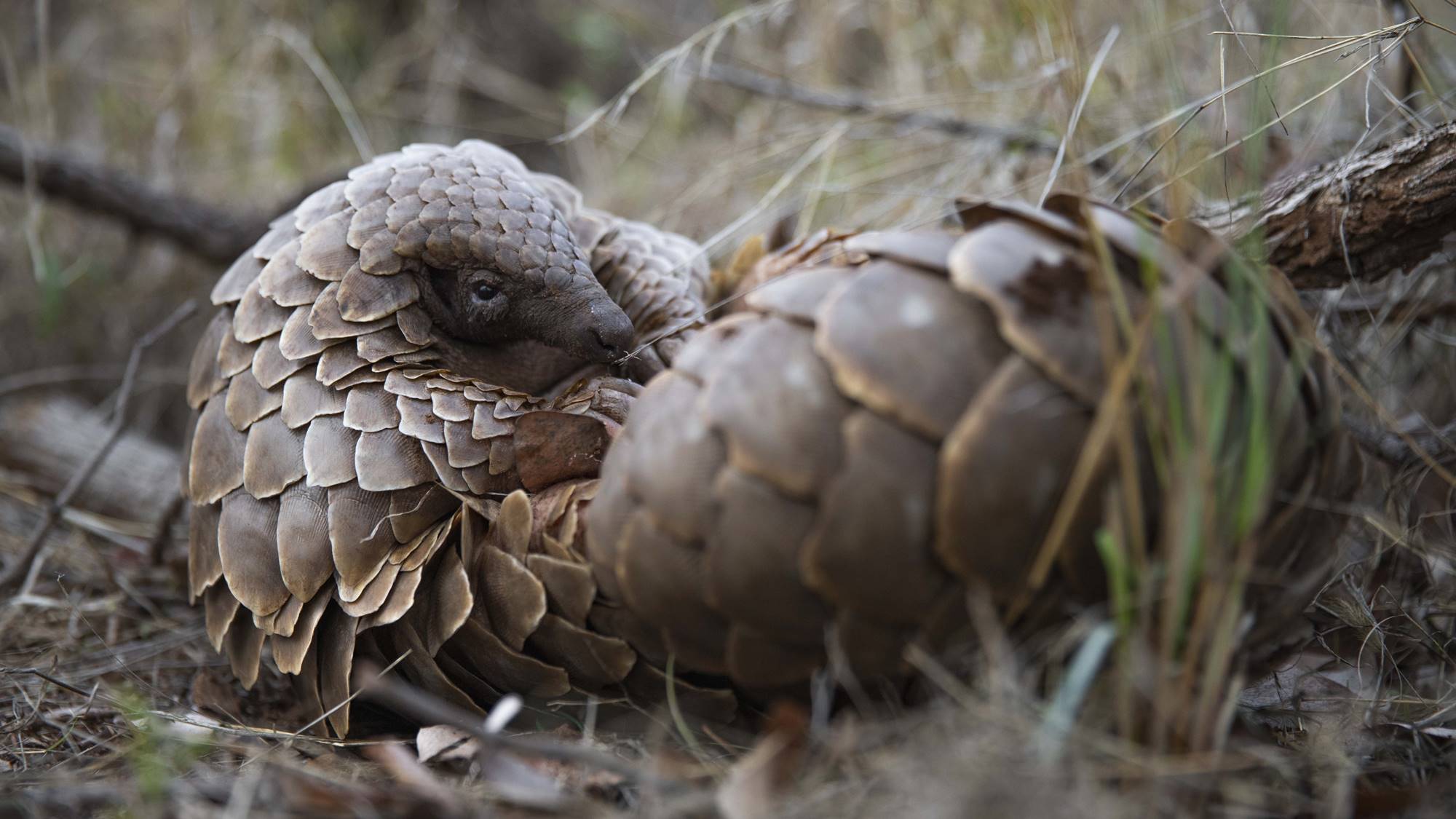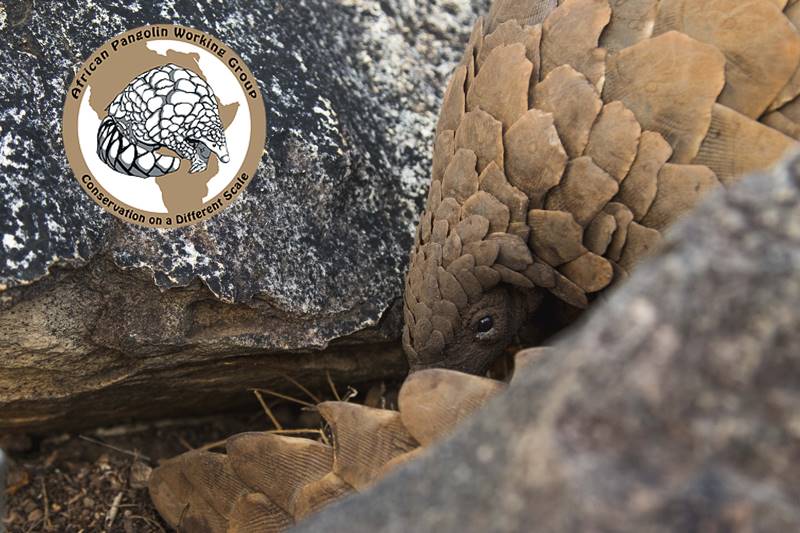
Fundraising target: £2,100 +
Funds donated: £6,500
Project: to fund telemetry equipment (devices to track and monitor rehabilitated pangolins). This is one of 21 projects nominated for our 21 For 21 programme.
21 For 21 Project Partner: African Pangolin Working Group
The African Pangolin Working Group strives towards the conservation and protection of all four African pangolin species by generating knowledge, developing partnerships and creating public awareness and education initiatives.
Find out more about the African Pangolin Working Group. Set up a 21 For 21 Fundraising Page.
About the African Pangolin Working Group
The African Pangolin Working Group (APWG) is a non-profit organisation based in South Africa and established almost a decade ago by Professor Ray Jansen. Jansen, who holds a PhD in Zoology and is a full-time lecturer at the Tshwane University of Technology in Pretoria leads a small group of experts, mostly working in a volunteer capacity. APWG was set up in response to concerns about the poaching and trade in all four African pangolin species.
APWG focus much of their efforts on reducing the trade in pangolins. All pangolins retrieved out of the illegal wildlife trade are compromised. The African Pangolin Working Group has been appointed by the South African Government to oversee the rehabilitation of pangolins in the country. Each retrieved pangolin is assessed, treated and rehabilitated by their experienced team.
APWG also offer environmental education for rural children, publish scientific research and educate law enforcement and judicial agencies, both provincially and nationally.
Pangolins
There are eight species of pangolins worldwide, of which four occur in Asia and four in Africa. Pangolins have been on the planet for 85 million years and are the only mammals whose bodies are covered in scales rather than fur. Pangolins give birth to live young having one baby (which is called a pup) a year. Gestation periods are unknown – various authors have claimed 3 to 10 months. Pangolins are believed to live for up to 20 years in the wild but they do not survive well in captivity and are very prone to stress.
Threats
Although large predators, starvation, fires and possibly disease pose a threat to wild pangolins, the vast majority of threats facing pangolins today are of a human origin.
Pangolins are the most trafficked mammal in the world. 97 tonnes of African pangolin scales were confiscated en-route to Asia last year, where they are used in Traditional Chinese Medicine. This volume constitutes ~150 000 pangolins, considered to be only 10-20% of the actual illegal trade.
Pangolins are also used in Traditional African Medicines, known locally as Muthi. In Central and West Africa pangolins are predominantly used as a source of food.
Other threats include habitat loss, habitat fragmentation and electric fences, which kill a number of pangolins every year.
Rehab for Rescued Pangolins
Rescued pangolins are nursed back to health by vets that specialise in the treatment and care of compromised pangolins. During the process of treatment and rehabilitation, detailed care is taken of each pangolin – they are incredibly vulnerable to stress which can quickly spiral into fatal medical complications.
APWG are developing a ‘pangolarium’ currently, a specialised facility for pangolins that are out of high care but not yet ready for release, where ‘shepherds’ spend up to 6 hours a day overseeing the wild foraging for these animals in a wilderness area that is protected from poachers and with an abundance of ants and termites.
It can take from a few weeks to several months until a pangolin is ready for release – a complicated process necessitating different stakeholders, various permits, the careful selection of a suitable release site and the expensive process of every animal being fitted with both a satellite and VHF tag.
Telemetry is vital for intense monitoring during the soft release phase and then later when the animal is fully “re-wilded” again. This process can take several months and released pangolins are monitored for up to a year. The success rate is 80%.
21 For 21 aims to help APWG with telemetry costs. VHF/UHF tags are approx. £250 each and SAT tags are approx. £1,000 each. VHF is used to locate the animal, the UHF stores on-board GPS locations every few minutes. The VHF is only functional for up to 5 km in the African savannah and since the pangolins can walk up to 10km in a night SAT (satellite) tags are also needed.
Visit South Africa through our responsible travel network.
Images courtesy of APWG
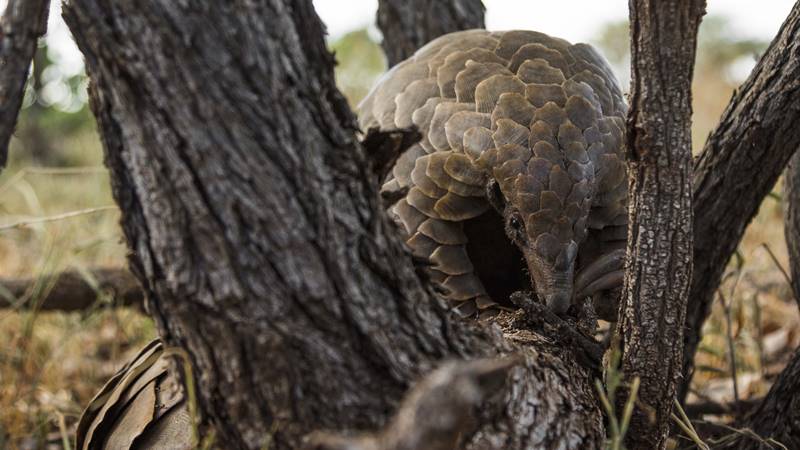
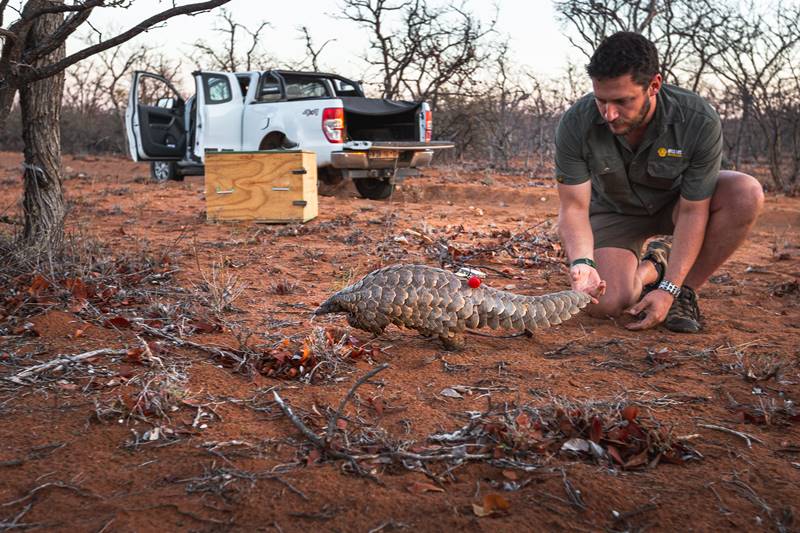
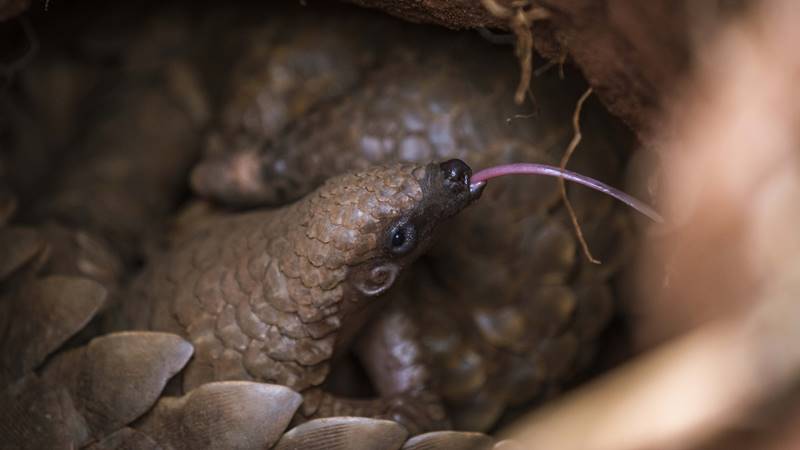
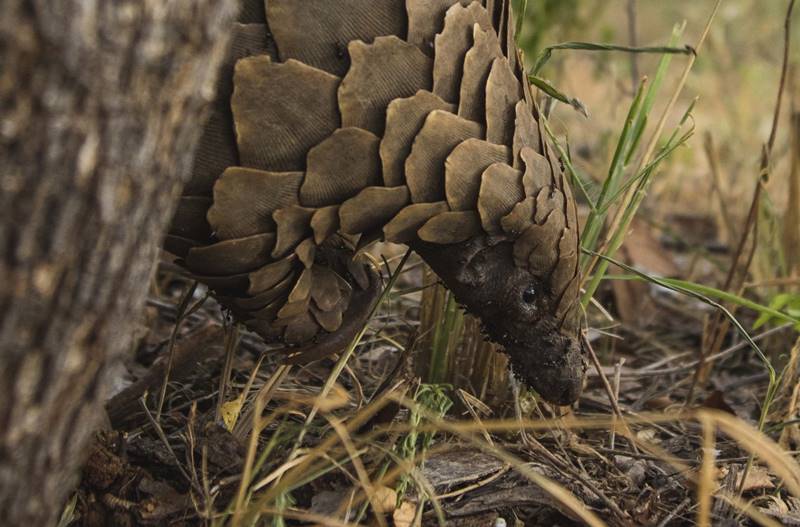
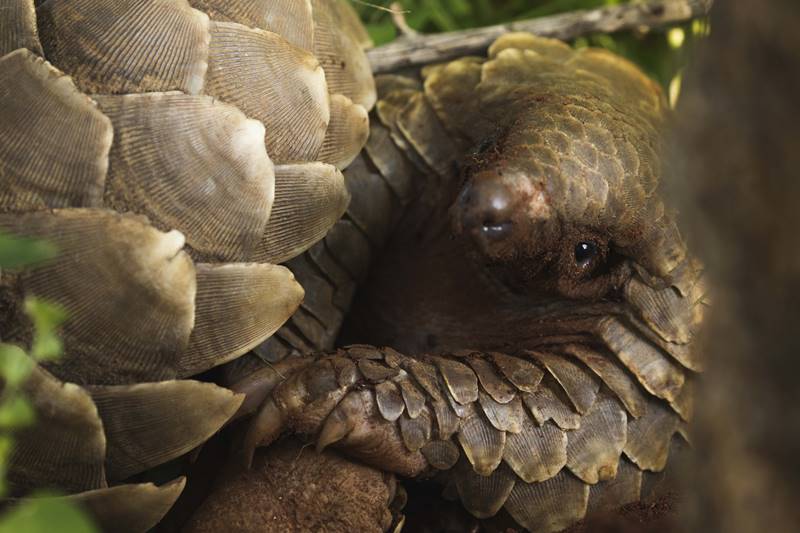
All funds raised during 2021 will contribute to the 21 For 21 Project Fund so please do sign up for a sponsored challenge (details here), support our creative initiatives, or make a donation if you are able to. Every Pound makes a difference. Thank you.
